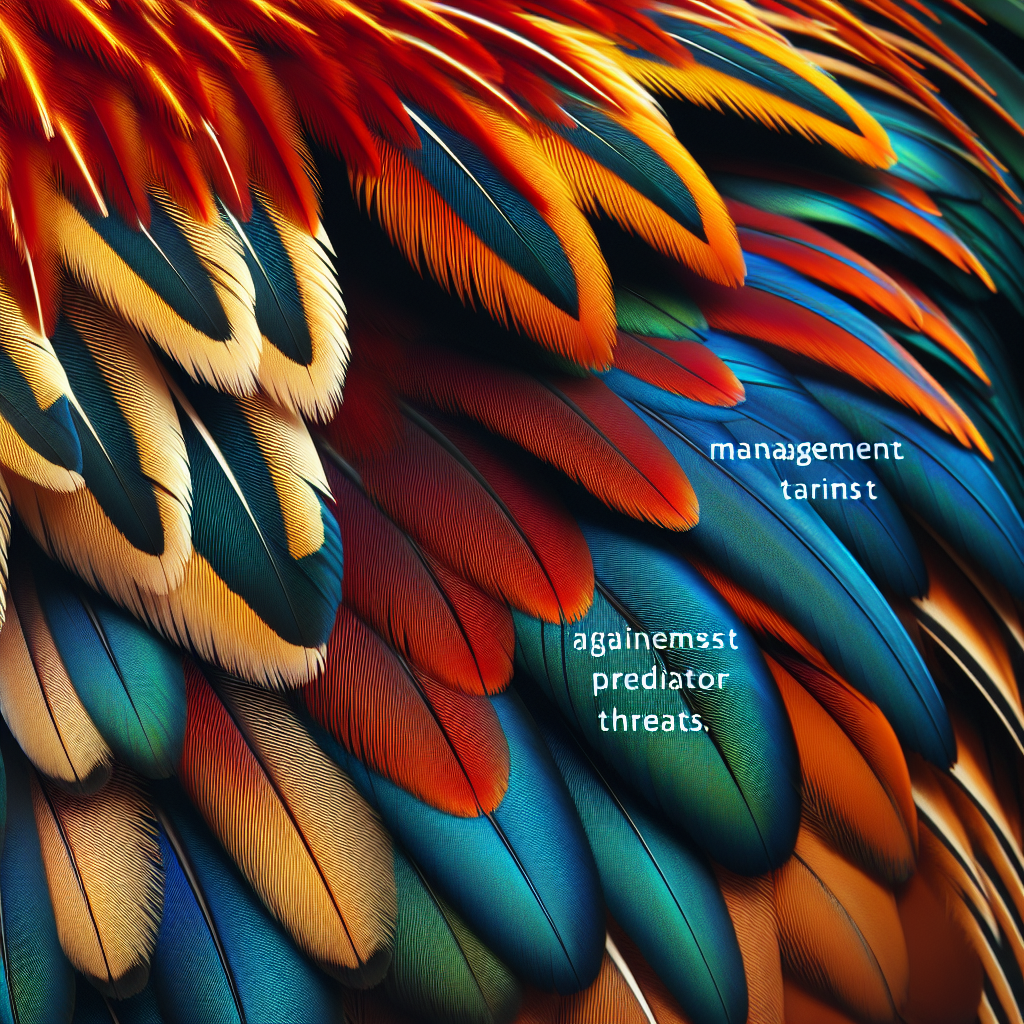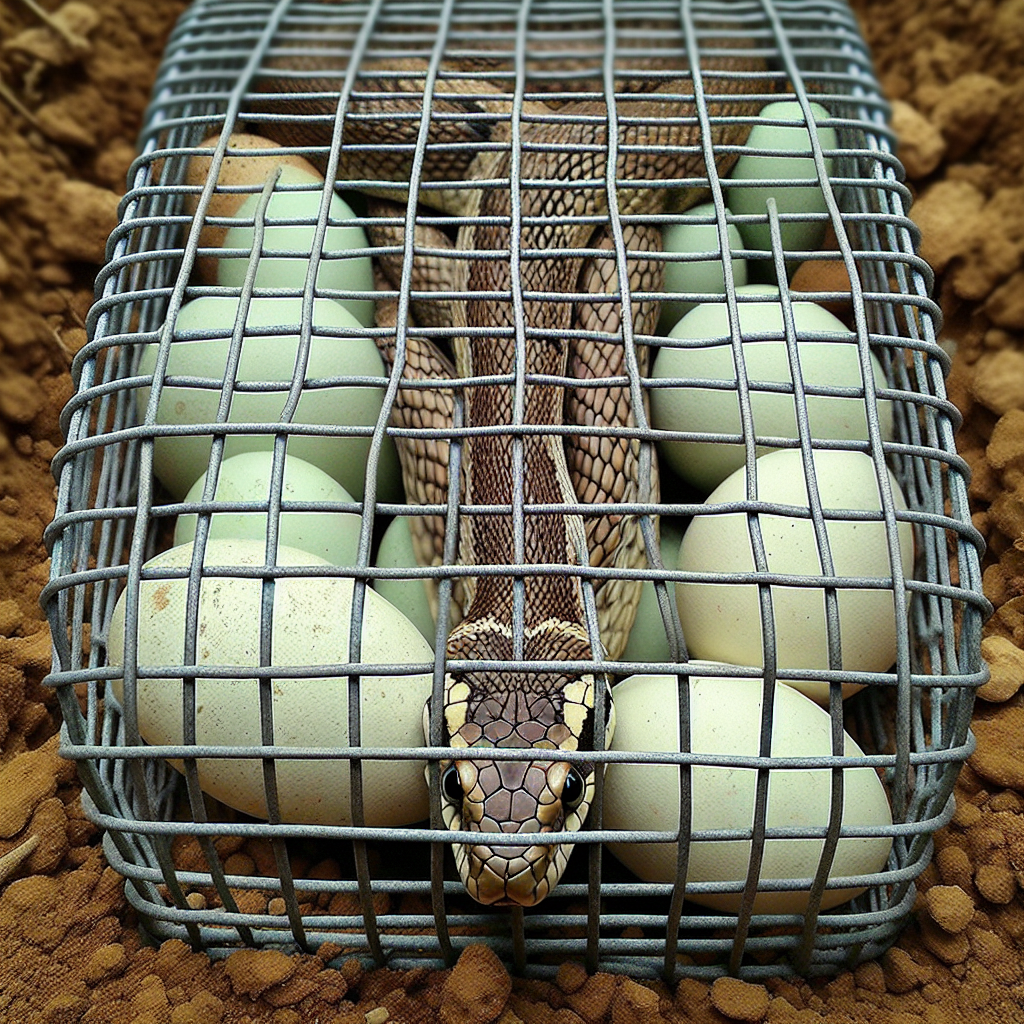Managing free-ranging chickens while protecting them from predators can be a challenging task. With the constant threat of predators lurking around, it becomes essential for you to strike a balance between giving your chickens the freedom to roam and ensuring their safety. In this article, we will explore various strategies and tips to help you navigate this delicate situation, allowing you to enjoy the benefits of free-ranging chickens while keeping them safe from harm. So, let’s dive into the world of chicken management and predator protection, finding the perfect harmony for your flock’s well-being.
Creating a Secure Enclosure
When it comes to creating a secure enclosure for your chickens, the first step is choosing the right fencing. Opt for a sturdy and reliable option such as welded wire or hardware cloth with small openings to prevent predators from squeezing through. Make sure the fence extends at least a foot underground to deter burrowing animals.
Securing the perimeter of your enclosure is equally important. Regularly inspect the fence for any gaps, holes, or loose areas, and promptly repair them to prevent predators from gaining access. Consider installing an electric fence or adding a layer of chicken wire around the bottom of the enclosure to further reinforce its security.
Adding a roof or netting to your enclosure is essential for protecting your chickens from aerial predators such as hawks and owls. Ensure that the roof or netting is securely fastened to prevent any gaps or openings. A solid roof can also provide shelter from inclement weather, while netting allows sunlight and fresh air to flow through.
Implementing Protective Measures
Installing motion-activated lights around your chicken enclosure can effectively deter nocturnal predators. These lights will startle predators, making them hesitant to approach and potentially alerting you to their presence. Ensure that the lights are strategically placed to cover all angles and areas of vulnerability.
Using predator deterrents can provide an additional layer of protection. There are various options available, such as predator urine, predator decoys, and even sound devices that emit distress calls of potential prey animals. Experiment with different deterrents to find the ones that work best for your specific predator threats.
Keeping a livestock guardian animal, such as a dog or a donkey, can greatly reduce the risk of predator attacks. These animals are known for their protective instincts and can effectively ward off potential threats. However, it is crucial to ensure that the guardian animal is properly trained and introduced to the chickens gradually to avoid any accidents.
Supervising Free-ranging Time
While free-ranging allows chickens to enjoy natural behaviors and forage for food, it’s essential to schedule supervised roaming periods. Designate a specific time of day when you can be present to keep a watchful eye on your chickens. This way, you can quickly intervene if a predator approaches and ensure the safety of your flock.
Using chicken tractors is an alternative to free-ranging while still allowing your chickens access to fresh grass and insects. Chicken tractors are mobile enclosures that can be moved around your yard or pasture, providing a controlled environment for your chickens. Regularly move the tractors to allow your chickens to forage in different areas while maintaining their protection.
Avoid free-ranging during high-risk times, such as dawn and dusk, when predators are most active. Predators are more likely to target chickens during these hours of low light. Instead, keep your chickens securely in their enclosure during these times. Adjust the free-ranging schedule according to the specific predator threats in your area.
Coexisting with Wildlife
Understanding the local predator population is vital for effectively managing the threat they pose to your chickens. Research the predators in your area and learn about their habits, preferred prey, and attack methods. This knowledge will help you devise appropriate strategies to deter them and protect your flock.
Creating natural deterrents can help discourage predators from approaching your chickens’ area. Planting dense shrubs or tall grasses around the perimeter of the enclosure can provide additional cover and make it more difficult for predators to access the chickens. Avoid placing any attractants, such as bird feeders or compost piles, near the enclosure, as they can draw in predators.
To avoid attracting predators to your property, practice good hygiene and waste management. Promptly remove any spilled feed or scattered scraps that may attract rodents, which can, in turn, lure in larger predators. Regularly clean the chicken coop and dispose of waste properly to discourage predators from viewing your property as a potential food source.
Providing Adequate Shelter
Designing a predator-proof chicken coop is crucial for the safety and security of your flock. The coop should be constructed with solid materials such as wood, and all entry points should be reinforced with hardware cloth or strong wire mesh. Ensure that the doors and windows can be securely closed and locked at night.
Implementing secure night-time practices is essential to protect your chickens when they are most vulnerable. Close and lock the coop every evening before sunset to prevent predators from gaining entry. Consider installing automatic coop doors, which can be programmed to open and close at specific times, providing an added layer of convenience and security.
Creating hiding spots and perches within the chicken enclosure can give your flock a sense of security. Provide dense vegetation or shrubs where chickens can take cover if a predator enters the area. Place sturdy perches or roosting bars at varying heights to give chickens a safe place to perch and observe their surroundings.
Ensuring Proper Nutrition and Health
Feeding your chickens a well-balanced diet is essential for their overall health and well-being, which can indirectly contribute to their ability to defend against predators. Provide them with a commercially available quality chicken feed that meets their nutritional requirements. Supplement their diet with fresh fruits, vegetables, and bugs for added variety and nutrients.
In addition to a balanced diet, providing necessary supplements can further support your chickens’ health. Consult with a veterinarian or poultry expert to determine if additional supplements such as calcium, vitamins, or probiotics are needed for your flock. These supplements can help strengthen their immune system and increase their resilience against diseases.
Regular health checks and vaccinations are essential in maintaining a healthy flock. Conduct routine inspections to identify any signs of illness, injury, or infestations. Consult with a veterinarian to establish a vaccination schedule and ensure that your chickens are up to date on necessary vaccines. Healthy chickens are less susceptible to predators due to their overall vitality and ability to escape when threatened.
Training and Socializing Chickens
Teaching your chickens to return to the coop on command can be a useful skill in managing their safety. Spend time initially training your chickens to respond to a specific call or signal that signals them to return to the coop. Reinforce this behavior by rewarding them with treats when they successfully follow the command. This training will help you quickly secure your chickens in case of any potential predator encounters.
Encouraging a strong flock bond among your chickens can also increase their safety. Chickens naturally form social hierarchies and tend to stay close to each other for protection. Introduce new chickens gradually and ensure that they are properly integrated into the existing flock to avoid conflicts. A cohesive flock is more likely to alert each other to potential dangers and work together to defend against predators.
Minimizing human dependence is important for grooming resilient and self-reliant chickens. Avoid excessive handling or interaction with your chickens, as this can make them more vulnerable to distress and stress-related issues. Foster their independence by encouraging their natural behaviors and ensuring they have adequate resources and social interaction within the flock.
Utilizing Technology
Surveillance cameras can be a valuable tool in monitoring your chicken enclosure. Install cameras around strategic locations to keep a close eye on any potential predator activity. This technology will allow you to observe your chickens remotely and provide an early warning system in case of any security breaches.
Utilizing sound or motion-triggered alarms can startle and deter predators from approaching the chicken enclosure. These alarms can be strategically placed around the perimeter and activated by any movement or suspicious sounds. The sudden loud noise can scare off potential predators and alert you to their presence, enabling quick intervention.
Exploring automated coop doors can offer convenience and added security. These doors can be programmed to open and close at specific times, eliminating the need for manual intervention. Automated doors can ensure that your chickens are safely locked inside the coop during the night and provide a barrier against opportunistic predators.
Learning from Local Experts
Seeking advice from experienced poultry keepers within your community can provide valuable insights and practical tips. They can offer guidance based on their own experiences with managing chickens and predators in your specific area. Local experts can share knowledge about the common predators, effective deterrents, and best management practices.
Consulting with your local agricultural extension offices or agricultural professionals can also provide you with expert advice tailored to your region. These resources often offer educational programs or workshops related to poultry keeping and predator management. Take advantage of their expertise to enhance your understanding and improve your chicken management techniques.
Joining poultry-related community groups, both online and offline, can connect you with a network of like-minded individuals facing similar challenges. These communities often share information, resources, and valuable insights about predator management. Participating in discussions, asking questions, and sharing your own experiences can help you learn and adapt your practices accordingly.
Staying Informed and Adapting
Keeping up with predator behavior and trends is crucial for maintaining the security of your chicken enclosure. Stay informed about local predator sightings, changes in behavior, or any new predator threats in your area. This knowledge will help you adapt your management strategies and implement necessary precautions in a timely manner.
Being flexible with your management strategies is essential to effectively respond to evolving predator threats. What works well for one predator species may not be as effective for another. Stay open to experimenting with different deterrents and protective measures to find the most suitable ones for your specific circumstances.
Continuously improving your security measures is key to staying one step ahead of potential predators. Regularly assess the effectiveness of your enclosures, deterrents, and management practices. Identify any weak points or areas that can be further strengthened to enhance the overall security of your chickens. By constantly adapting and improving, you can provide a safer environment for your flock.




